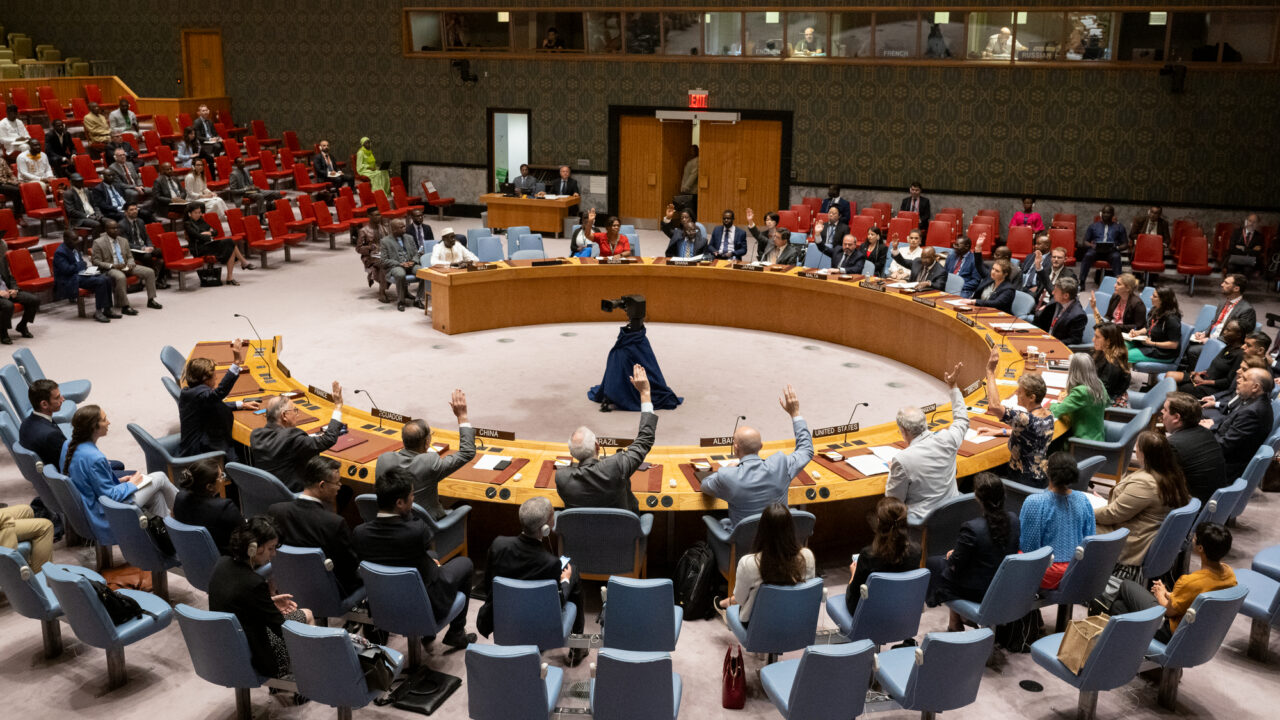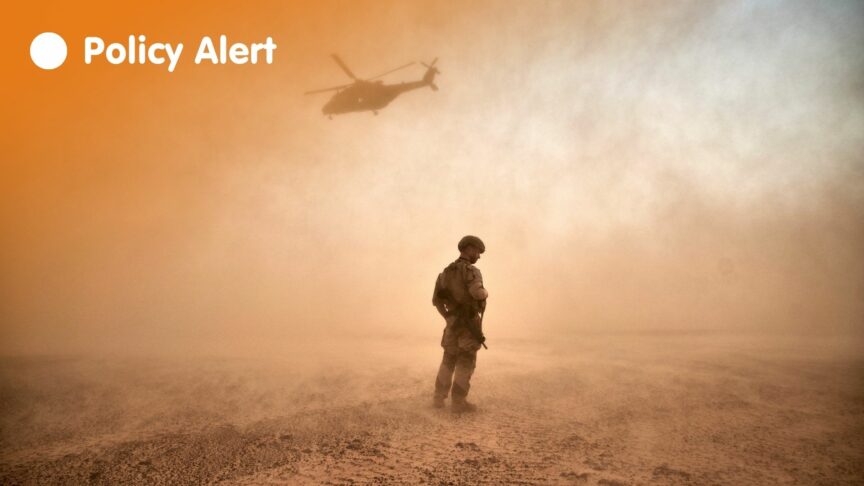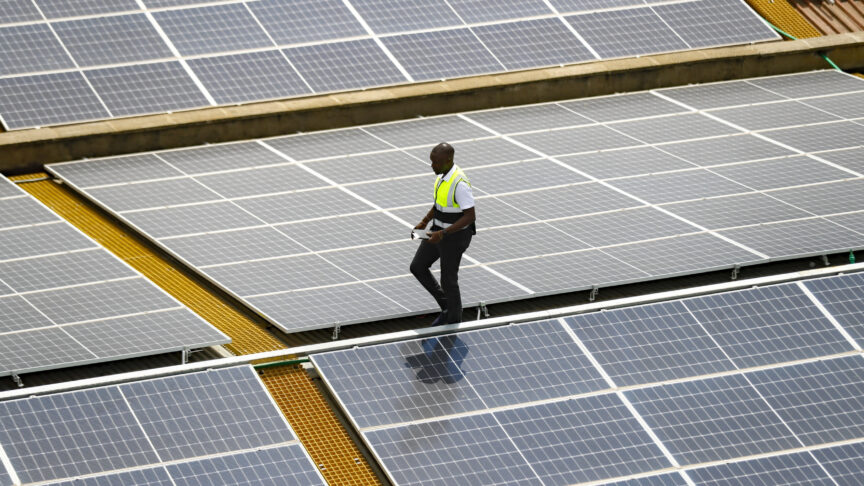Displacement theory: Why “peace enforcement” risks exacerbating conflicts in Africa
The United Nations and the African Union are moving towards the use of “peace enforcement” – but their preferred approach is unlikely to succeed
The United Nations and the African Union (AU) appear set to embark on a more aggressive – and less effective – approach to peace operations in Africa. Their chosen path is likely to exacerbate rather than alleviate entrenched conflicts across the continent. Yet, if they act now, European states and the European Union have the opportunity to persuade the UN and the AU to instead place their weight behind “local dialogue” methods as the route towards sustainable peace.
The era of large-scale UN peace operations is coming to an end; the UN’s stabilisation mission in Mali, MINUSMA, is just the latest to draw down. But the UN and the AU have already alighted on a successor model for conflict management in Africa. This new era is set to be defined by missions led by the AU – and which would also receive “peace enforcement” mandates from the UN. These operations would apply military means to “enforce” peace in a conflict. Draft plans indicate these would involve the use of 4,000-5,000 troops for up to two years.[1] These AU-led operations would focus on combatting non-state armed groups; and they will not have reconstruction and civilian mandates. After stabilising the deployment area, the AU would then hand over to UN missions to implement the essential aspects of peacebuilding.
This would be a fundamental shift, and the approach has endorsement at the highest levels: UN secretary-general António Guterres has repeatedly stressed the need for “a new generation of peace enforcement missions and counter-terrorist operations, led by regional forces”. AU commissioner for political affairs, peace, and security, Bankole Adeoye, has called for “a paradigm shift from peacekeeping to peace enforcement”. But the debate so far has largely focused on discussions between UN Security Council members on how to fund AU peace and security operations.
The UN’s push for the AU to attempt to implement this novel approach is driven by the view that UN peace operations have been unsuccessful in tackling the rise of powerful armed groups, which have no interest in ever concluding a political settlement with African governments. Meanwhile, violence continues, along with the poverty, displacement, and famine that this entails, destroying the lives of individuals and communities. Proponents maintain that UN solutions have failed Africa: that their core peacekeeping principles of consent, impartiality, and limited use of force have constrained UN missions and permitted armed groups to dig in and prevent African governments from providing civilians with basic services, including security.[2] Both organisations believe that the AU is better suited to the challenge because AU peacekeepers are more willing to engage in offensive operations against armed groups. This sentiment is neatly summarised by one Western diplomat, who stated that “the AU is willing to pay the price of blood. For the UN, it’s not possible.”
No force for good
However, the peace enforcement approach is more likely to hinder peacebuilding efforts than create lasting political solutions.
The rationale behind a peace enforcement model is that it can be effectively implemented alongside peacebuilding: civilian populations are only under the control of non-state armed groups because they are more militarily powerful than governments. If these groups are defeated, governments can then extend state control and service provision. The issue is reduced to a theory of replacing non-state armed groups with governments.
The reasons for the resilience of non-state armed groups are more complicated than the “peace enforcement” approach can resolve
But in the countries with major UN and AU peace operations that are seen to have failed, the reasons for the resilience of non-state armed groups are more complicated than this approach can resolve. Armed groups hold significant territory not just because they are militarily more powerful than the governments, but because civilians often believe their interests are better served by these groups. And these interests often rest on issues of intercommunal disputes over land, water, and other resources.
In Mali, for example, tensions between social and ethnic communities, ideological clashes, and resource competition allow armed groups to represent specific interests while capitalising on resentment against weak local governments. Here, the Katibat Macina jihadist group often defends the Fulani people, who are nomadic, and engages in combat against Dogon, who are settled farmer communities. The defeat of such a group through a peace enforcement mission would only deepen existing tensions between civilians – and potentially between civilians and the newly returned state – and undermine later attempts at peacebuilding.
Instead, the better approach would be to support forms of local dialogue, which have previously demonstrated some success in the Sahel and in the Democratic Republic of Congo. These forums can sustainably address the roots of local grievances while allowing for local ownership, which is crucial for a “bottom-up” form of peacebuilding. In the case of Mali, dialogue promotion in the country’s Niono commune between Katiba Macina and Donso militants yielded a peace agreement. The negotiations revolved around the tangible resources of land and water. This approach is no panacea: local dialogue has proven to be difficult to sustain without state support, as evidenced by the eventual collapse of that peace agreement following the second 2021 coup in Mali. But, despite its difficulties, local dialogue provides a credible path forward to addressing the drivers of conflict, rather than exacerbating them.
European support for local dialogue
In recent times, the colonial legacy and direct military presence of European states in Africa has been a central theme accompanying coups in Mali and Niger. There is no easy way to begin to address the inheritance of the past. But Europeans can act now to halt the slide to militarisation embodied in the peace enforcement idea (even if this militarisation is African-led), and tackle the more deeply seated causes of endemic security issues across Africa.
European members of the UN Security Council should engage in formal and informal discussions with other Security Council members to persuade decision-makers away from peace enforcement operations and towards local dialogue. African partners and the AU will be an essential component of these discussions, and will be more effective at facilitating local dialogue than the UN. Beyond the confines of the UN, the EU has already used its European Peace Facility to support the AU and national governments; it can expand this to develop state and AU institutional capacity to undertake local dialogue and to address local issues. And there is a geopolitical incentive: European backing for African peace operations will aid efforts to dissuade African governments from partnering up with would-be security providers such as Wagner. As the UN considers anew peacebuilding in Africa, this is a rare opportunity to get right this new generation of peace operations. Charging the AU to undertake aggressive operations is the wrong approach. The right approach is to recalibrate future AU peace operations towards supporting, rather than hindering, future peacebuilding efforts. This is by far the more promising path for conflict management in Africa.
[1] Author interviews, European officials, Addis Ababa, June 2023.
[2] Author interviews, European officials, Addis Ababa, June 2023.
The European Council on Foreign Relations does not take collective positions. ECFR publications only represent the views of their individual authors.



